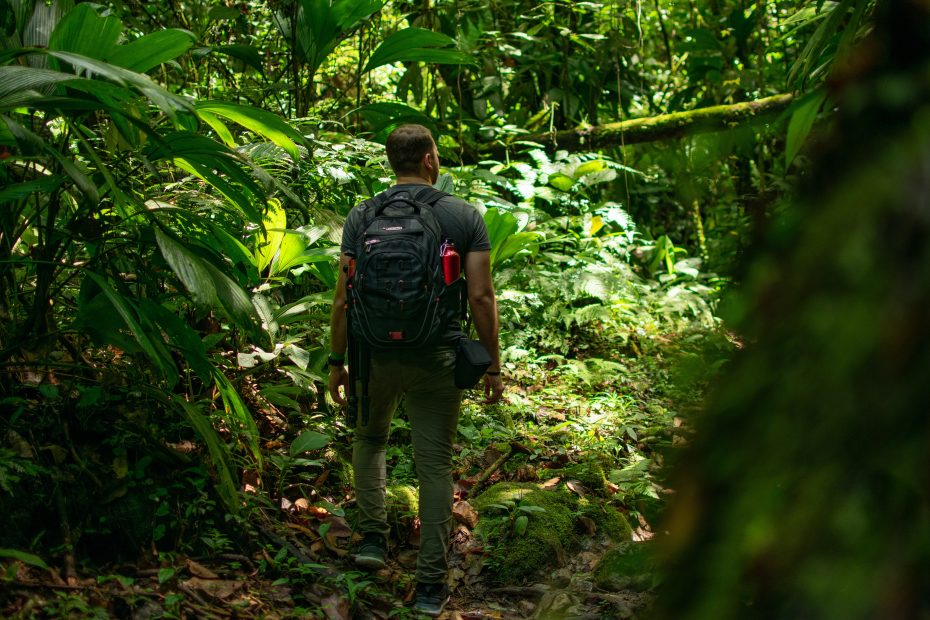What is Ecotourism?


Ecotourism refers to a form of sustainable tourism that focuses on responsible travel to natural areas with the aim of conserving the environment and improving the well-being of local communities.
Ecotourism typically involves activities such as wildlife observation, hiking, camping, and other outdoor recreational activities that allow visitors to appreciate and learn about the natural environment.
The key principles of ecotourism include minimizing environmental impact, providing positive experiences for both visitors and hosts, and supporting the conservation of natural and cultural heritage. Additionally, ecotourism promotes community involvement and the empowerment of local people to manage and benefit from tourism activities in their area.
What are some examples of ecotourism?
There are many examples of ecotourism around the world. Here are some examples:
- Galapagos Islands, Ecuador: This is a popular destination for ecotourists due to the unique wildlife and biodiversity found in this remote island chain.
- Maasai Mara National Reserve, Kenya: This reserve offers visitors the opportunity to see wildlife up close and learn about Maasai culture.
- Costa Rica: This country is known for its ecotourism activities, such as rainforest hikes, bird watching, and sustainable agriculture tours.
- Great Barrier Reef, Australia: This world-famous reef is a popular destination for ecotourists who want to see the incredible diversity of marine life.
- Amazon Rainforest, South America: This vast wilderness is home to countless species of plants and animals, and ecotourists can experience it through activities like jungle treks and river cruises.
- Borneo, Southeast Asia: This island is home to endangered species like orangutans and pygmy elephants, and ecotourism activities include rainforest trekking and wildlife watching.
- Yellowstone National Park, United States: This park offers visitors the opportunity to see geothermal features, such as geysers and hot springs, and watch wildlife like bears and bison.
These are just a few examples of the many ecotourism destinations and activities around the world.
Why is ecotourism so popular?
Ecotourism is popular for several reasons:
- Sustainability: Ecotourism promotes sustainable tourism practices that minimize the negative impact on the environment and support the local communities.
- Authentic experiences: Ecotourism activities offer visitors the chance to experience natural environments, wildlife, and local cultures in an authentic and responsible way.
- Education and awareness: Ecotourism promotes awareness and education about environmental conservation and sustainability issues. Visitors can learn about the natural environment and the importance of protecting it.
- Adventure and outdoor recreation: Ecotourism activities provide opportunities for adventure and outdoor recreation, such as hiking, kayaking, and wildlife watching.
- Economic benefits: Ecotourism can provide economic benefits to local communities, helping to support sustainable livelihoods and conservation efforts.
Ecotourism offers a way for people to experience and appreciate natural environments and cultural heritage while supporting sustainable tourism practices and local communities.
Why is ecotourism important?
Ecotourism is a form of tourism that focuses on responsible travel to natural areas with the aim of conserving the environment and improving the well-being of local communities. It is an important form of tourism for several reasons.
One of the main benefits of ecotourism is that it can contribute to the conservation of natural environments and wildlife habitats. By generating economic benefits, it can provide a financial incentive for local communities and governments to protect natural resources and wildlife. This can help to prevent deforestation, habitat destruction, and other forms of environmental damage.
Ecotourism also promotes awareness and education about environmental conservation and sustainable tourism practices. Visitors can learn about local cultures, wildlife, and ecosystems, and how to minimize their impact on the environment. This education can raise awareness about the importance of conservation and can help to create more environmentally conscious travelers.
Another benefit of ecotourism is that it promotes sustainable tourism practices. By minimizing the negative impact on the environment and supporting local communities, ecotourism can help to ensure that tourism is sustainable and does not negatively impact the environment or the local community.
Ecotourism also provides economic benefits to local communities. This can help to support sustainable livelihoods and conservation efforts, as well as promote the preservation of cultural heritage by supporting local communities and promoting respect for traditional cultures.
Overall, ecotourism is an important form of tourism that can help to conserve natural environments and cultural heritage, promote sustainable tourism practices, provide economic benefits to local communities, and offer visitors unique and educational travel experiences.
Explore iGMS, your one-stop solution for vacation rental management. With easy-to-use tools for guest communication, booking coordination, and team management, it simplifies your workload. It’s time-saving, efficient, and designed for everyone, from independent hosts to large companies. Upgrade your rental business and enhance guest satisfaction with iGMS.







![Your Monthly iGMS Roundup [February 2020]](/content/images/size/w600/wordpress/2020/02/igms-roundup-feb-2020-cover.png)

